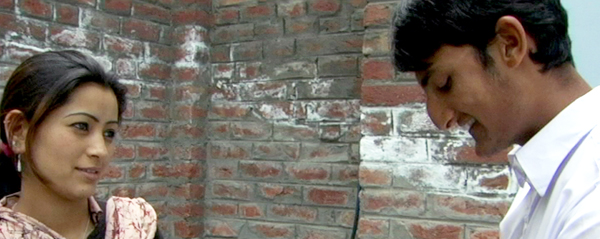|
Reviews of Recent Independent, Foreign, & Documentary Films in Theaters and DVD/Home Video

ZERO BRIDGE Zero Bridge wistfully captures the daily frustrations of a young man and woman in the tinderbox of India-held Kashmir, though it has no direct political agenda. As specific as the depiction of their plight, it’s the universality of their feelings that makes the film touching. The aspirations of 17-year-old Dilawar (Mohamad Emran Tapa) are heard in his narration throughout the film, but they are actually his imagined letters to his adoptive mother, who abandoned him in the territorial capital of Srinagar in order to start a new family with her husband in Delhi. In his rosy correspondence, he’s still a high-school student and everything is fine, unlike his squalid reality of living and working construction with his abusive Uncle Ali (Ali Muhammed Dar) while perfecting his skills in thievery and fraud. Showing off his chops to his criminal mentor, he lifts the passport of a middle-class woman in her twenties, Bani Sheikh (Taniya Khan). She has the privilege of a cell phone and has experienced the freedom of a college education abroad. But she’s feeling just as trapped, working at a shipping office and doing housework under the demanding eye of her domineering mother and passive sisters, who seem dully satisfied glued to the TV while they anticipate their arranged marriages. Worse, Dilawar’s theft has left her with no means of escape. When he crosses paths with her again, he draws her unwittingly into one of his moneymaking schemes. The thrust of the plot is the slow development of his guilty conscience as he gradually gets to know her. First-time director Tariq Tapa, a New York-raised émigré, plays their story out in a neo-realistic style inspired by such European directors as Roberto Rossellini and Ermanno Olmi. His non-professional cast includes his cousin and other family members, while “Uncle Ali” was working as a mason at the real construction site. Ironically, they first had to be disabused of acting stereotypes from Bollywood romances and Hollywood action flicks and introduced to such art-house cinema interpretations of reality. For this reality, there are too many complicated elements that don’t quite jive together. When Dilawar’s not a brick laying apprentice being beaten by his uncle, he hustles math homework to ex-classmates, fences stolen booty, assists a houseboat manager catering to condescending Western tourists, and learns traditional Kashmiri folk music. This sort of limitless enterprise by a Muslim teenager was more credible in Bahman Ghobadi’s similarly styled Turtles Can Fly (2004), set in Kurdistan. As for Bani, her American college education surprisingly hasn’t eased her trepidation about traveling to Delhi alone. The
documentary Project Kashmir (2008), filmed in the same area
around the same time by Pakistani-American Senain Kheshgi and
Indian-American Geeta Patel, dealt with the impact of the area’s
notorious nationalist clashes. Zero Bridge’s political tensions,
though, are just a drumbeat in the background, from
aggressive soldiers on the titular downtown bridge to radio reports of
terrorist attacks throughout the region. Despite the story issues, the
director successfully personalizes a new generation’s sadly thwarted
yearnings for personal freedom from traditional restrictions in a
stymied place, where there is no revolutionary or fairy tale solution.
Nora Lee Mandel
|

